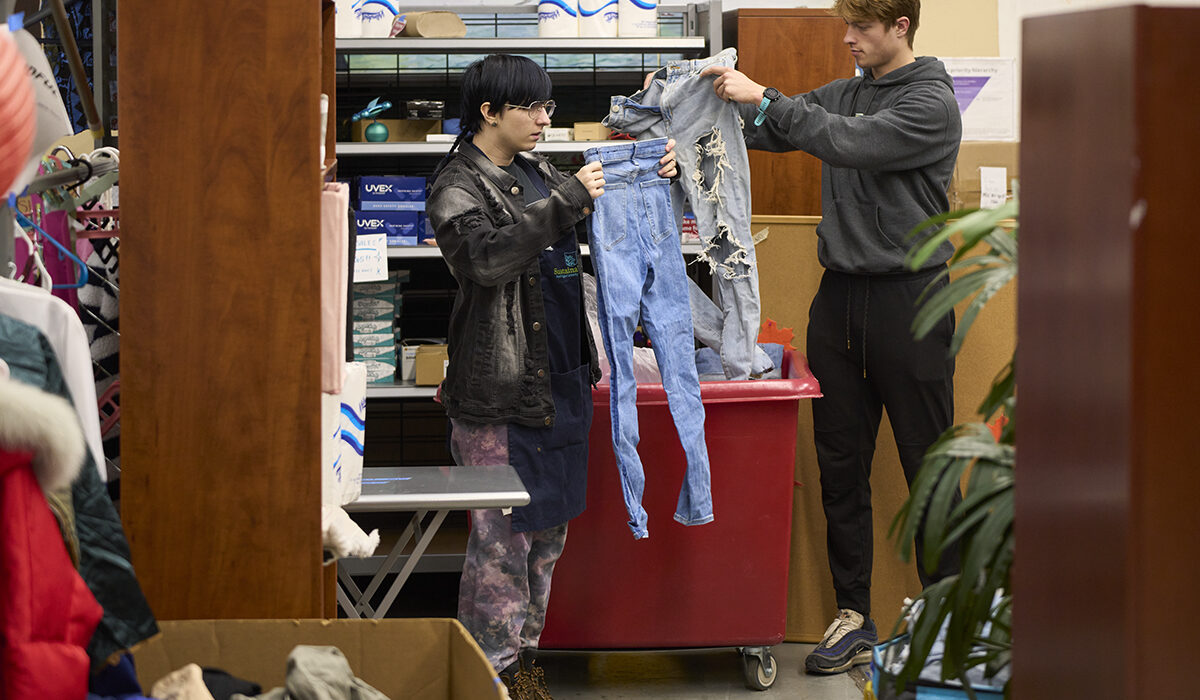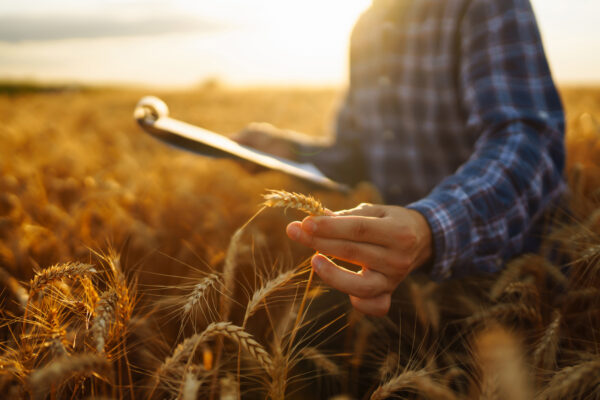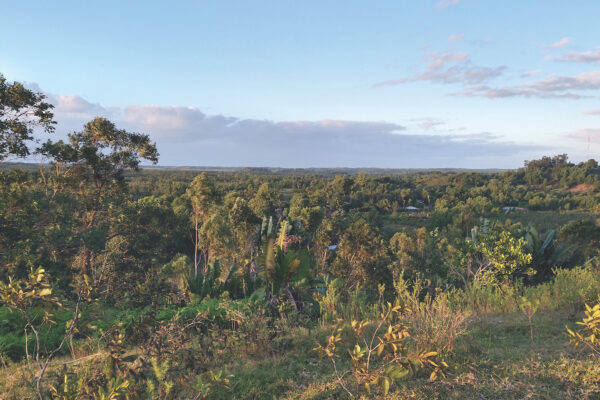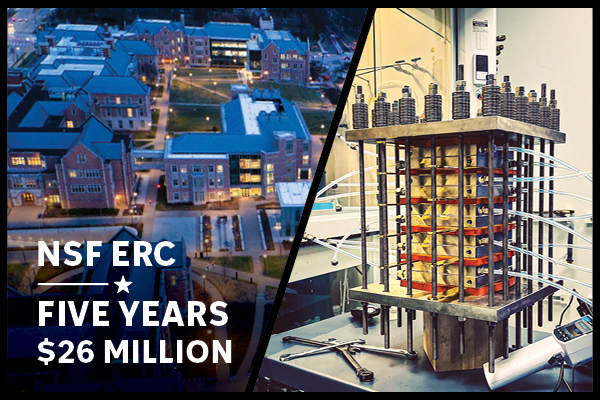Computer monitors and coffee pots. Blankets and binders. T-shirts and televisions.
Every year, tons of unwanted stuff from Washington University’s residence halls, offices and student apartments find their way to the Circularity Center on WashU’s North Campus. That’s where Geena Richards and student Cosmo Jarboe, members of the new Campus Compact EnviroCorps program, inspect, sort and search for new homes for every discarded item.
“The first thing I always ask myself is, ‘How can this be reused?’” said Richards, as she surveyed a stack of used keyboards. “Reducing what we buy reduces the materials that are being transported across the earth, the dyes that are going into rivers, the pollution that goes into the air.”
This academic year, the WashU EnviroCorps team diverted 6,145 pounds of materials from the dumpster — a remarkable success for the new initiative. But Richards and Jarboe have another goal: to help their neighbors on campus and in the community. To that end, they assist the Share Our Stuff program in hosting regular sales, where students can buy clothes and household items for $2 a pound. Richards also works with a number of nonprofits, organizing deliveries of much-needed items to their organizations and warehouses.
“Maybe it’s a student who needs a winter coat or a social worker for Home Sweet Home who needs a table for an unhoused client who is moving into a new apartment — getting these items into the hands of the people who need them most is so impactful, not just from a sustainability perspective, but from a community perspective,” Richards said.
WashU is one of 13 colleges nationwide participating in Campus Compact EnviroCorps, aimed at reducing waste, boosting energy efficiency and promoting conservation on campuses and in the community.
WashU’s participation with the EnviroCorps program is funded by the Office of Sustainability, the School of Medicine, the Environmental Studies program, Facilities Planning & Management and the Midwest Climate Collaborative.
The program has three full-time AmeriCorps members: Richards, who serves at the Circularity Center; Elliot Williams, who splits his time between the WashU Green Labs Program and Energy Care, a nonprofit that helps low-income St. Louisans weatherize their homes; and Michael Barash, a recent WashU graduate who supports both the WashU Arboretum and Forest ReLeaf, which is creating a resilient tree canopy in St. Louis and across Missouri. The members are assisted by Jarboe, a sophomore studying psychology and women and gender studies in Arts & Sciences, and Sarah You, an architecture student in the Sam Fox School of Design & Visual Arts. The Office of Sustainability is currently accepting applications for EnviroCorps members for the summer term.
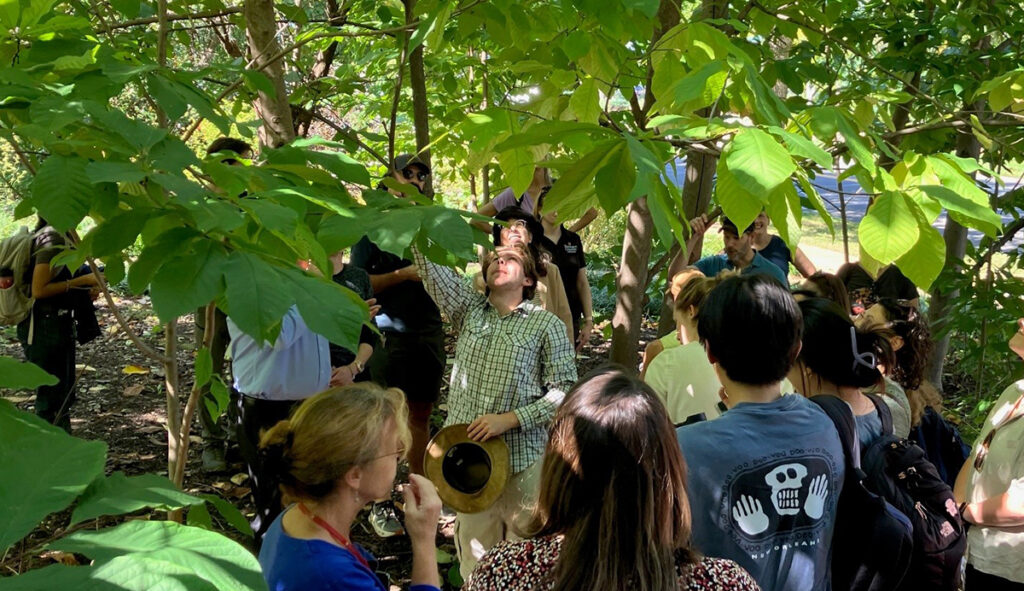
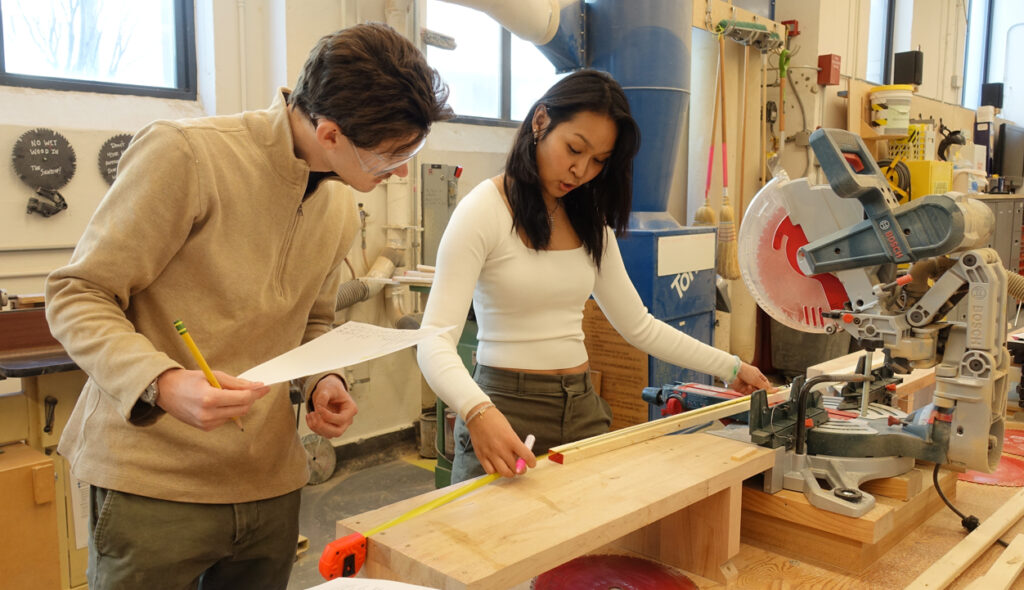
Phil Valko, assistant vice chancellor for sustainability, said EnviroCorps members are making a big impact in the region and on each other. The three full-time members share a campus apartment and work on one another’s projects.
“As a cohort experience, this program provides EnviroCorps members a broad view of what environmental stewardship looks like. Each member has expertise and passion in their focus area and they are sharing that knowledge with one another and learning how these systems intersect,” Valko said. “The more they learn, the more they are able to make a difference in the community. We’ve seen a significant capacity jump to support efforts on campus and with our community partners.”
For Williams, that means helping WashU labs conserve energy and reduce waste through the Green Labs Program. He currently is organizing a lab supply swap on the WashU Medical Campus. He is also working with EnergyCare to increase energy efficiency in the homes of senior and low-income St. Louisans.
Barash is expanding education programs for the WashU Arboretum, one of the few Level III arboreta on a college campus. As an undergraduate, Barash interned at the arboretum, where he was mentored by the late Stan Braude.
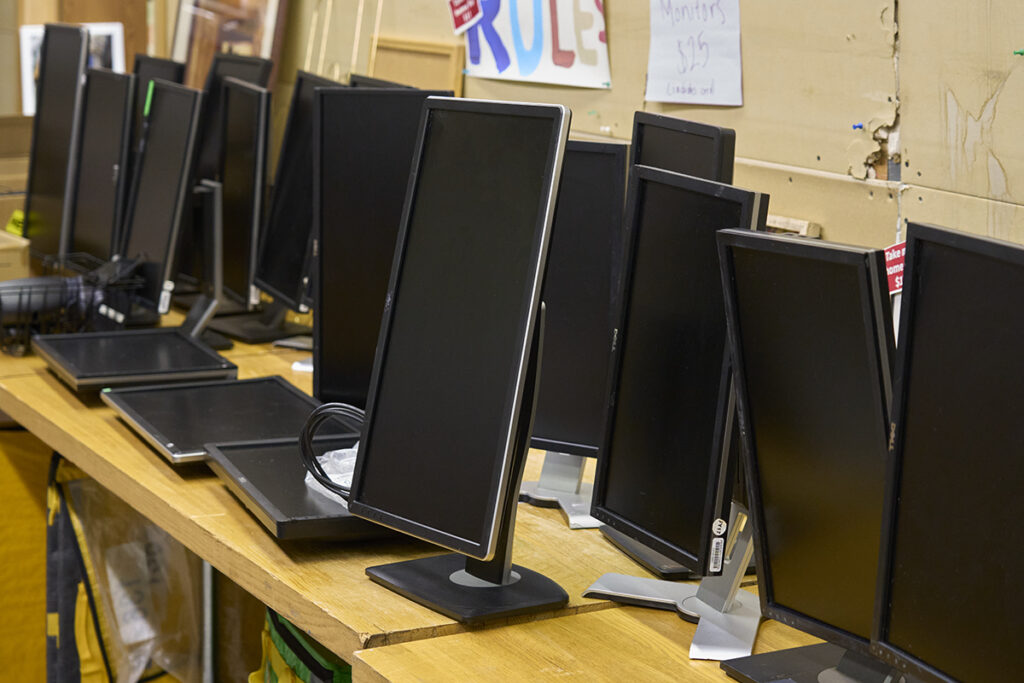
“Stan told me something that really has stuck with me — that when you start looking at trees and knowing, ‘This is sweet gum. That is tulip poplar.’ You don’t look at the world the same way again. You start to care,’” Barash said. “The arboretum gives people who already love trees an opportunity to get involved and learn new things. But it’s also a space for people who want to understand how nature interacts with their life.’”
Barash also works for Forest ReLeaf, planting trees and expanding the urban tree canopy. A large and diverse tree canopy has a wide range of documented benefits for human health, from removing pollutants from the air to boosting mental health to reducing summer temperatures by as much as 10 degrees.
Back at the Circularity Center, Jarboe is folding jeans with volunteers from Heart for the Unhoused, a student group that partners with St. Louis Public Schools (SLPS) Students in Transition, an office that serves the district’s 4,100 students who lack housing.
This winter, the EnviroCorps team partnered with the group to deliver 375 pounds of linens — comforters, blankets, sheets, pillows and towels — to Deidra Thomas-Murray, who leads the SLPS program.
“The items are used, but they are a blessing,” Thomas-Murray said. “I’m watching families go through these blankets and asking, ‘Can I have more than one?’ ‘Yes, of course you can.’ Our students may have otherwise gone without those items.”
Jarboe said his experience at the Circularity Center has motivated him to pursue a career in social work. His favorite part of the job is helping social workers gather items for their clients.
“I’ve probably touched every item in here, so when someone comes in, I can show them exactly where to go,” Jarboe said. “I love shopping — I mean, I call it shopping but obviously we’re donating these items — but when you’re shopping with someone, you add that personal touch. You are letting them know they matter.”
